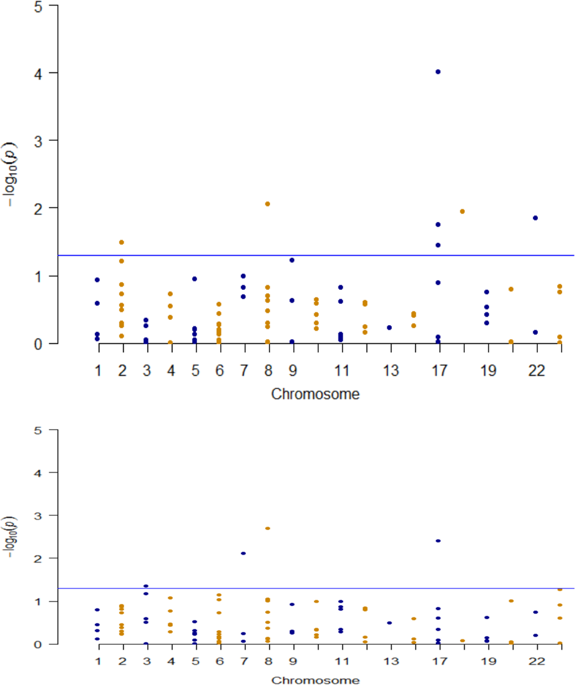当前位置:
X-MOL 学术
›
Prostate Cancer Prostatic. Dis.
›
论文详情
Our official English website, www.x-mol.net, welcomes your
feedback! (Note: you will need to create a separate account there.)
Germline genetic variation in prostate susceptibility does not predict outcomes in the chemoprevention trials PCPT and SELECT.
Prostate Cancer and Prostatic Diseases ( IF 5.1 ) Pub Date : 2019-11-27 , DOI: 10.1038/s41391-019-0181-y Mahbubl Ahmed 1 , Chee Goh 1 , Edward Saunders 1 , Clara Cieza-Borrella 1 , , Zsofia Kote-Jarai 1 , Fredrick R Schumacher 2 , Ros Eeles 1
Prostate Cancer and Prostatic Diseases ( IF 5.1 ) Pub Date : 2019-11-27 , DOI: 10.1038/s41391-019-0181-y Mahbubl Ahmed 1 , Chee Goh 1 , Edward Saunders 1 , Clara Cieza-Borrella 1 , , Zsofia Kote-Jarai 1 , Fredrick R Schumacher 2 , Ros Eeles 1
Affiliation

|
BACKGROUND
The development of prostate cancer can be influenced by genetic and environmental factors. Numerous germline SNPs influence prostate cancer susceptibility. The functional pathways in which these SNPs increase prostate cancer susceptibility are unknown. Finasteride is currently not being used routinely as a chemoprevention agent but the long term outcomes of the PCPT trial are awaited. The outcomes of the SELECT trial have not recommended the use of chemoprevention in preventing prostate cancer. This study investigated whether germline risk SNPs could be used to predict outcomes in the PCPT and SELECT trial.
METHODS
Genotyping was performed in European men entered into the PCPT trial (n = 2434) and SELECT (n = 4885). Next generation genotyping was performed using Affymetrix® Eureka™ Genotyping protocols. Logistic regression models were used to test the association of risk scores and the outcomes in the PCPT and SELECT trials.
RESULTS
Of the 100 SNPs, 98 designed successfully and genotyping was validated for samples genotyped on other platforms. A number of SNPs predicted for aggressive disease in both trials. Men with a higher polygenic score are more likely to develop prostate cancer in both trials, but the score did not predict for other outcomes in the trial.
CONCLUSION
Men with a higher polygenic risk score are more likely to develop prostate cancer. There were no interactions of these germline risk SNPs and the chemoprevention agents in the SELECT and PCPT trials.
中文翻译:

前列腺易感性的种系遗传变异不能预测化学预防试验 PCPT 和 SELECT 的结果。
背景技术前列腺癌的发展可能受到遗传和环境因素的影响。许多种系 SNP 会影响前列腺癌的易感性。这些 SNP 增加前列腺癌易感性的功能途径尚不清楚。非那雄胺目前并未常规用作化学预防剂,但正在等待 PCPT 试验的长期结果。 SELECT 试验的结果并未推荐使用化学预防来预防前列腺癌。本研究调查了种系风险 SNP 是否可用于预测 PCPT 和 SELECT 试验的结果。方法 对参加 PCPT 试验 (n = 2434) 和 SELECT (n = 4885) 的欧洲男性进行基因分型。使用 Affymetrix® Eureka™ 基因分型方案进行下一代基因分型。使用逻辑回归模型来测试风险评分与 PCPT 和 SELECT 试验结果的关联。结果 在 100 个 SNP 中,有 98 个设计成功,并且在其他平台上对基因分型样本进行了基因分型验证。在这两项试验中,许多 SNP 都预测了侵袭性疾病。在这两项试验中,多基因评分较高的男性更有可能患前列腺癌,但该评分并未预测试验中的其他结果。结论 多基因风险评分较高的男性更有可能患前列腺癌。在 SELECT 和 PCPT 试验中,这些种系风险 SNP 与化学预防药物之间没有相互作用。
更新日期:2019-11-27
中文翻译:

前列腺易感性的种系遗传变异不能预测化学预防试验 PCPT 和 SELECT 的结果。
背景技术前列腺癌的发展可能受到遗传和环境因素的影响。许多种系 SNP 会影响前列腺癌的易感性。这些 SNP 增加前列腺癌易感性的功能途径尚不清楚。非那雄胺目前并未常规用作化学预防剂,但正在等待 PCPT 试验的长期结果。 SELECT 试验的结果并未推荐使用化学预防来预防前列腺癌。本研究调查了种系风险 SNP 是否可用于预测 PCPT 和 SELECT 试验的结果。方法 对参加 PCPT 试验 (n = 2434) 和 SELECT (n = 4885) 的欧洲男性进行基因分型。使用 Affymetrix® Eureka™ 基因分型方案进行下一代基因分型。使用逻辑回归模型来测试风险评分与 PCPT 和 SELECT 试验结果的关联。结果 在 100 个 SNP 中,有 98 个设计成功,并且在其他平台上对基因分型样本进行了基因分型验证。在这两项试验中,许多 SNP 都预测了侵袭性疾病。在这两项试验中,多基因评分较高的男性更有可能患前列腺癌,但该评分并未预测试验中的其他结果。结论 多基因风险评分较高的男性更有可能患前列腺癌。在 SELECT 和 PCPT 试验中,这些种系风险 SNP 与化学预防药物之间没有相互作用。











































 京公网安备 11010802027423号
京公网安备 11010802027423号